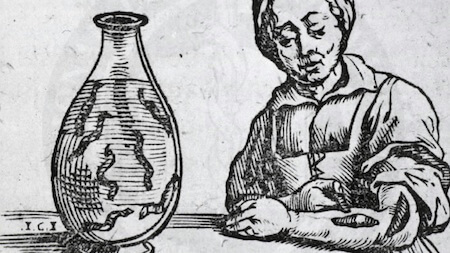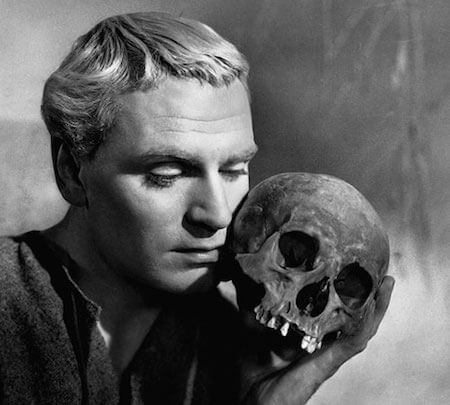It's indisputable that medicine has come a long way in the last 200 years, but do you know just how many advances have been made? Prior to the 19th century, medical practice was based largely on what ancient Greeks termed "the four humors," an idea formally introduced by Hippocrates way back in the 4th century BC.
The four humors were thought to be sanguine (blood), choleric (yellow bile), melancholic (black bile), and phlegmatic (phlegm) and their composition within the body was considered to determine a patient's personality and health concerns. Every human body was thought to contain some measure of each of these humors. Let's take a closer look!
 Ancient Greek physician Hippocrates was a proponent of the four humors theoryCourtesy of simple reminders.com
Ancient Greek physician Hippocrates was a proponent of the four humors theoryCourtesy of simple reminders.com
The Four Humors
Sanguine (Blood)
- Sanguine humor was associated with the season spring and the element air.
- Character traits related to a sanguine temperament include courage, hope, and playfulness.
- An excess of this humor was considered to be present if medical symptoms included fever and/or sweating.
- Medical professionals thought that in order to cure this problem they needed to bleed the patient. Doctors often did this using leeches. No thanks!
 You heard right - leeches were used to bleed sick people!Courtesy of dailytech.com
You heard right - leeches were used to bleed sick people!Courtesy of dailytech.com
Choleric (Yellow Bile)
- The choleric humor was typically thought to cause restlessness and aggression.
- It was associated with the element fire and the summer season. Interestingly, chamomile, which is currently often used in teas meant to calm and relax you, was frequently used to treat what was perceived to be an excess of this humor.
 Chamomile tea is often used to calm and relaxCourtesy of secretlyhealthy.com
Chamomile tea is often used to calm and relaxCourtesy of secretlyhealthy.com
Melancholic (Black Bile)
- Autumn is the season that was considered to be closely related to melancholic humor, and it was thought to represent the element earth.
- People with a tendency to be introverted, serious, or sad/depressed were thought to have too much black bile.
- This was commonly associated with dietary or digestive concerns.
- To treat an excess of black bile, doctors might attempt to force patients to purge, or throw up!
 Laurence Olivier played the melancholic Hamlet in Shakespeare's famous playCourtesy of Universal
Laurence Olivier played the melancholic Hamlet in Shakespeare's famous playCourtesy of Universal
Phlegmatic (Phlegm)
- The phlegmatic temperament was associated with the winter season and with the element water.
- Those who were thought to be predominantly phlegmatic were considered peaceful, calm, and thoughtful.
- Too much phlegm may be present if a patient had respiratory, cough and cold, or energy problems.
- Treatment for this was not as dramatic as some of the other humors - physicians may have recommended consuming more fluids and reducing stress.
 Coughing might have been considered a sign of an overabundance of the phlegmatic humor Courtesy of slideshare.net
Coughing might have been considered a sign of an overabundance of the phlegmatic humor Courtesy of slideshare.net
The four humors dominated medical practice for thousands for years - they were thought to determine every person's health, personality, and behavior. Although this theory is no longer in use, there are things that medical professionals have learned from it, such as the use of herbs to alleviate symptoms of some illnesses. Personally, I'm just glad that no doctors is coming to my house with leeches!
Have Your Say!
Which of the four humors do you think represents you? Share with us!

































